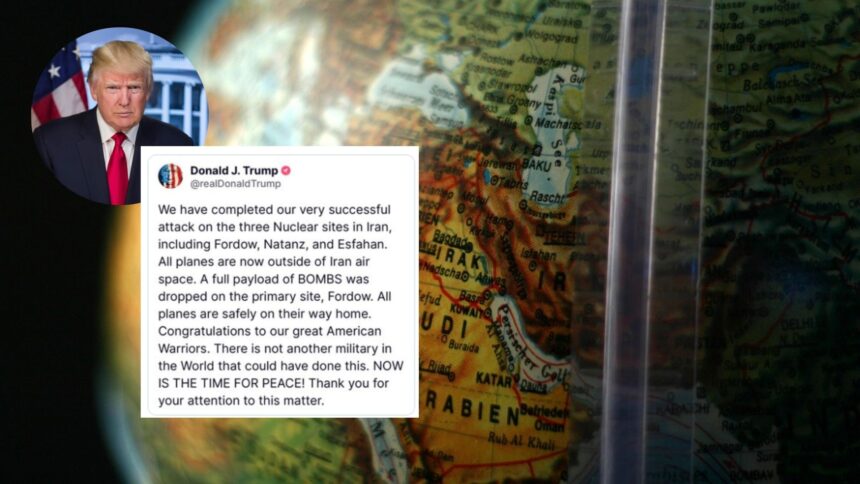On June 21, 2025, U.S. President Donald Trump confirmed that the American forces launched airstrikes on three Iranian nuclear facilities—Fordow, Natanz, and Isfahan—in an unprecedented escalation of the Israel-Iran war.
The strikes, conducted with B-2 stealth bombers and submarine-based Tomahawk missiles, hit facilities integral to Iran’s nuclear program, which, according to U.S. and Israeli claims, threatens regional security. Trump termed the strikes a “very successful attack,” claiming that the well-guarded Fordow center was “gone.”
The U.S. intervention followed Israel’s attacks against Iran, starting on June 13 to curb Tehran’s nuclear program. Trump had initially indicated a two-week time frame for Iran to negotiate, but the strikes came abruptly, a surprise even to the congressional leaders. The Pentagon confirmed the use of 75 precision-guided weapons, including 14 GBU-57 Massive Ordnance Penetrators, otherwise known as “bunker busters,” aimed at destroying deeply buried targets like Fordow.
Iran responded immediately to the unexpected attack. The state-run IRNA news agency acknowledged the attacks but denied any radiation contamination or major damage, asserting that nuclear materials had been evacuated ahead of time. Iranian Foreign Minister Abbas Araghchi called the U.S. actions “outrageous” and warned of “everlasting consequences,” stating that Tehran “reserves all options” for retaliation. Iran’s parliament voted to close the Strait of Hormuz, a critical oil shipping route, raising fears of global economic disruption.
The international reactions varied. Israeli Prime Minister Benjamin Netanyahu commended the U.S. attacks, while the United Nations and nations such as Cuba, Venezuela, and Qatar condemned the strikes and called for de-escalation. The International Atomic Energy Agency reported no increase in radiation levels but reported significant damage to Natanz and Isfahan.
Back in the United States, American legislators were divided. Republicans like Senators John Cornyn and Lindsey Graham supported Trump’s decision, while Democrats Ro Khanna and Bernie Sanders criticized the lack of congressional approval.
The strikes have heightened tensions, with Iran vowing retaliation, potentially targeting U.S. bases or regional interests. Analysts warn of risks ranging from missile attacks to disruptions in global oil supply as the Middle East braces for further escalation.
The world watches Iran’s next move, with Trump warning of further strikes if Tehran does not pursue peace. The conflict, now involving direct U.S. military action, threatens to spiral into a broader regional crisis.


Leave a Reply